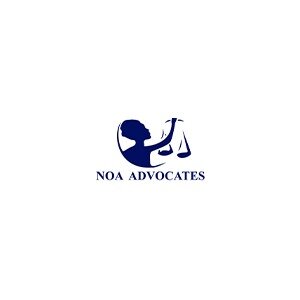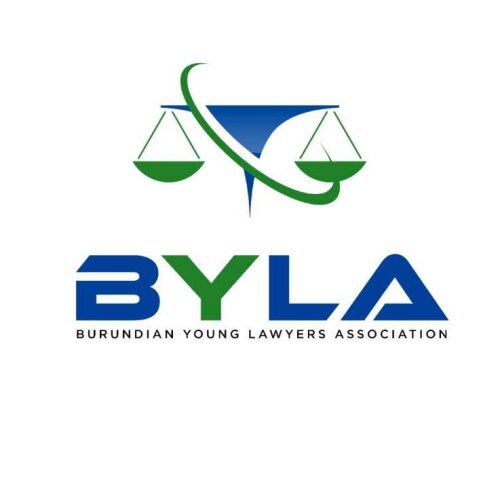Best Water Law Lawyers in Burundi
Share your needs with us, get contacted by law firms.
Free. Takes 2 min.
Or refine your search by selecting a city:
List of the best lawyers in Burundi
About Water Law in Burundi
Water Law in Burundi consists of the legal principles, rules, and regulations governing the ownership, management, allocation, and protection of water resources. Burundi’s water resources include rivers, lakes, underground water, and surface water that are vital for agriculture, industry, domestic use, and energy (especially hydroelectric power). The legal framework aims to ensure sustainable use, equitable access, pollution prevention, and conflict resolution over water rights, while aligning with international conventions Burundi is party to.
Why You May Need a Lawyer
Water Law in Burundi can be complex and often overlaps with environmental, agricultural, and land-use regulations. You may need a lawyer in situations such as:
- Negotiating water access and usage rights with neighbors or local communities
- Resolving disputes regarding water pollution or contamination
- Seeking permits for drilling wells or using surface water sources
- Challenging government actions that impact your access to water
- Understanding your obligations regarding water source protection as a landowner or business
- Representing your interests in multi-party or cross-border water issues
- Compliance with laws if you are developing infrastructure near water bodies
- Defending against claims of illegal use or unauthorized modifications to water resources
Local Laws Overview
Burundi’s legal framework for Water Law is primarily based on the Code de l’Eau (Water Code) and related environmental statutes. Key aspects include:
- All water resources are considered public property and managed by the state
- Access and use of water may be subject to licensing or permits, particularly for commercial or large-scale users
- There are specific regulations for protecting water catchments and preventing pollution
- Laws regulate the construction and maintenance of wells, dams, and other structures
- There are mechanisms for public participation in water management, especially in rural communities
- International agreements may influence border water use, especially for Lake Tanganyika or other transboundary resources
- Violations of water laws can result in administrative, civil, or criminal penalties
Frequently Asked Questions
What is the main law governing water resources in Burundi?
The principal law is the Code de l’Eau, which establishes state ownership of water resources and sets out rules for their use, management, and protection.
Who owns water resources in Burundi?
All water resources, including surface and subterranean water, are considered public property and managed by the state for the interest of all citizens.
Do I need a permit to use water from a river or lake for agriculture?
Yes, a permit is usually required to use significant quantities of surface water, especially for commercial or irrigation purposes. You should consult local authorities about the application process.
What can I do if my water source is polluted by a neighboring activity?
You should report the issue to the relevant local authorities and may consider seeking legal advice on how to initiate a claim for damages or to have the activity stopped.
How does Burundi regulate drilling for wells?
Drilling wells requires a permit, and there are technical and environmental standards that must be followed to protect aquifers and prevent contamination.
What are the penalties for illegally using water or polluting water sources?
Penalties can include fines, remediation orders, or even imprisonment, depending on the severity and nature of the violation.
Are there special rules for water use in rural communities?
Yes, local water user associations often play a role in allocating water and resolving disputes under the oversight of state agencies.
Can foreign companies access water resources in Burundi?
Foreign companies may access water resources but must comply with national laws and obtain the appropriate permits. There may be restrictions in sensitive areas.
Does Burundi cooperate with other countries on shared water bodies?
Yes, Burundi participates in regional treaties and initiatives, for example regarding Lake Tanganyika and the Nile Basin, to manage shared water resources sustainably.
Where can I get more information about my rights and obligations?
You can approach the relevant government ministries, consult local authorities, or speak to a specialized Water Law lawyer for guidance.
Additional Resources
For further assistance or information regarding Water Law in Burundi, consider contacting or consulting the following:
- Ministry of Water, Environment, Land Management and Urban Planning (Ministère de l'Eau, de l'Environnement, de l'Aménagement du Territoire et de l'Urbanisme) - Responsible for overall water management policies and enforcement
- Agence Burundaise de Régulation des Secteurs de l’Eau Potable et de l’Energie (AREEN) - Regulates water supply and energy sectors
- Local Communal and Provincial Offices - Your first point of contact for licensing, dispute resolution, and information
- Bar Association of Burundi - For referrals to lawyers experienced in Water Law
- Non-Governmental Organizations (NGOs) - Such as Burundi Environmental Protection Association, for guidance on community water rights and environmental impact
Next Steps
If you need legal assistance with Water Law in Burundi:
- Identify the nature of your issue, whether it is a permit, dispute, pollution, or involvement in water projects
- Gather all relevant documentation, such as land titles, water use permits, contracts, and records of correspondence
- Contact your local communal or provincial office for initial guidance and statutory requirements
- If your matter is complex or unresolved, consult a lawyer specializing in Water Law for tailored legal advice
- Consider mediation or alternative dispute resolution where appropriate, as Burundi encourages non-litigious settlement of water-related matters
- Stay informed about your obligations and rights to avoid penalties and ensure sustainable use of water resources for your community and business
Consulting a Water Law specialist can help you navigate the intricacies of the legal system, protect your interests, and contribute to the sustainable management of Burundi’s precious water resources.
Lawzana helps you find the best lawyers and law firms in Burundi through a curated and pre-screened list of qualified legal professionals. Our platform offers rankings and detailed profiles of attorneys and law firms, allowing you to compare based on practice areas, including Water Law, experience, and client feedback.
Each profile includes a description of the firm's areas of practice, client reviews, team members and partners, year of establishment, spoken languages, office locations, contact information, social media presence, and any published articles or resources. Most firms on our platform speak English and are experienced in both local and international legal matters.
Get a quote from top-rated law firms in Burundi — quickly, securely, and without unnecessary hassle.
Disclaimer:
The information provided on this page is for general informational purposes only and does not constitute legal advice. While we strive to ensure the accuracy and relevance of the content, legal information may change over time, and interpretations of the law can vary. You should always consult with a qualified legal professional for advice specific to your situation.
We disclaim all liability for actions taken or not taken based on the content of this page. If you believe any information is incorrect or outdated, please contact us, and we will review and update it where appropriate.
Browse water law law firms by city in Burundi
Refine your search by selecting a city.











